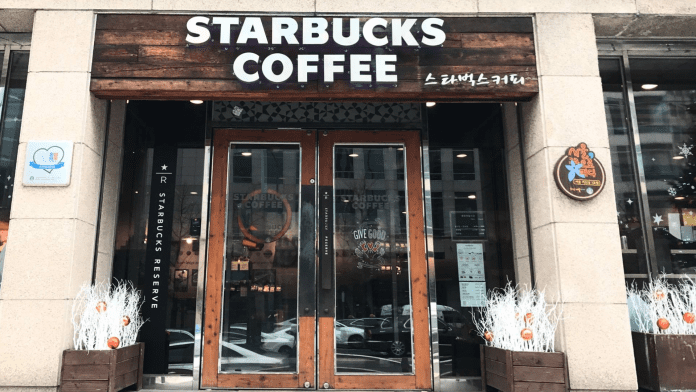Nestlé S.A., the world’s largest food company, is gearing up to introduce compact Starbucks-branded stores in South Korea, as reported by sources in the investment banking industry on Monday. The goal is to attract Starbucks cafe goers who are mindful of their budgets.
The distributor of the Swiss company in South Korea is exploring the possibility of establishing Starbucks-branded stores within moderately sized supermarkets, grocery stores, and university campuses. This approach deviates from the strategy of creating new standalone outlets.
Back in 2018, Nestlé secured the rights for $7.15 billion from Starbucks, granting them the authority to distribute Starbucks coffee and tea beverages through grocery stores and retail establishments.
This arrangement permits Nestlé to offer Starbucks coffee capsules compatible with its Nespresso and Nescafé Dolce Gusto coffee machines, along with an assortment of Starbucks food and drinks, across 80 nations.
Presently, it aims to maximize the utilization of its rights to vend beverages crafted from Starbucks’ coffee beans and ingredients sourced from the coffee chain. This will be implemented in the upcoming Starbucks stores that Nestlé is getting ready to establish in South Korea.
The sources based in Seoul indicated that the Starbucks branded stores will adopt a “store-in-store” approach, avoiding a focus on main streets where Starbucks operates its own directly managed outlets.
Nestlé has initiated discussions with multiple food store operators in South Korea, which encompass entities like the fresh food distributor Oasis, the organic food label Chorokmaeul, and the University of Suwon. These conversations revolve around the prospect of establishing Starbucks branded stores within the available spaces of these entities.
The Starbucks brand stores are expected to feature a modest setup with just two to three tables and a minimal staff presence. This streamlined approach will empower the operators to offer coffee at a reduced price, approximately 3,000 won ($2.3) per cup.
Nestlé has clarified that the coffee brewed within these stores will be marketed under the Starbucks brand, and there will be no distinction in terms of taste, quality, or branding when compared to coffee purchased at Starbucks’ directly managed outlets.
Starbucks generates royalties through the sale of trademark rights across various product categories. In South Korea, companies like E-Mart Inc. (a supermarket chain), Dongsuh Foods Corp., and Seoul Milk offer Starbucks products under the terms of royalty agreements.
E-Mart and its parent company Shinsegae Inc. possess exclusive rights for the production and sale of Starbucks beverages and the operation of stores. Meanwhile, Dongsuh Foods and Seoul Milk are responsible for the manufacturing and distribution of Starbucks bottled beverages, including ready-to-drink products.
The distribution of Starbucks coffee beans and coffee capsules is managed by Lotte Nestlé Korea Co.
Given this context, Nestlé’s intention to establish Starbucks brand stores distinct from their directly operated counterparts might encounter resistance from South Korea’s retail conglomerate, Shinsegae Group.
A representative from Starbucks Coffee Korea (SCK), which is owned by Shinsegae, emphasized that the company holds the exclusive domestic business rights for Starbucks stores.
Observers within the food and beverage industry speculate that if Nestlé introduces compact and affordable Starbucks brand stores, it could potentially reshape the dynamics of the local franchise coffee market.
“With the domestic coffee market being divided into premium and low-end markets, if Starbucks advances into the low- to mid-price market with its brand awareness, it will threaten existing franchise brands,” said a coffee industry official.





